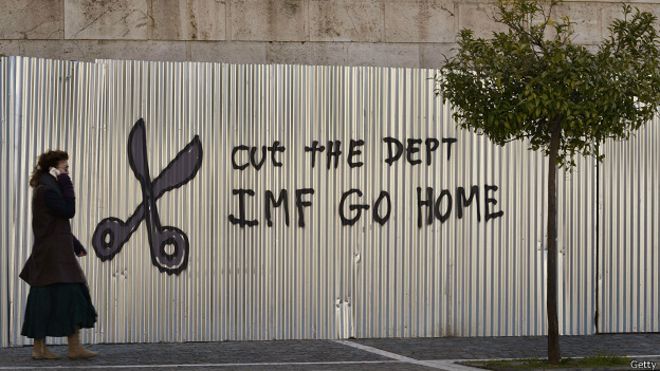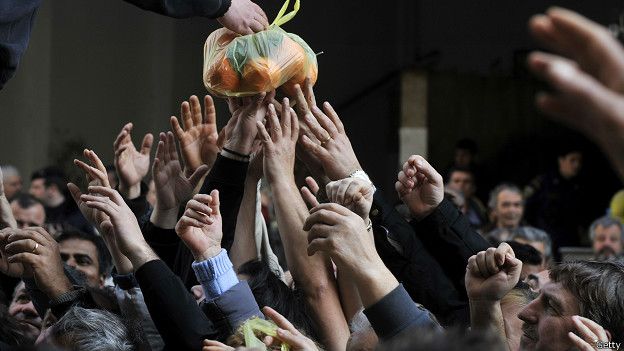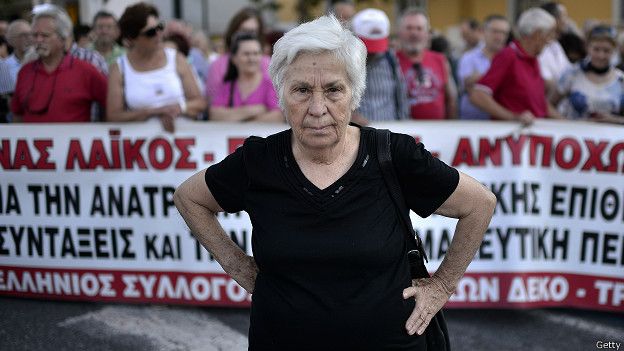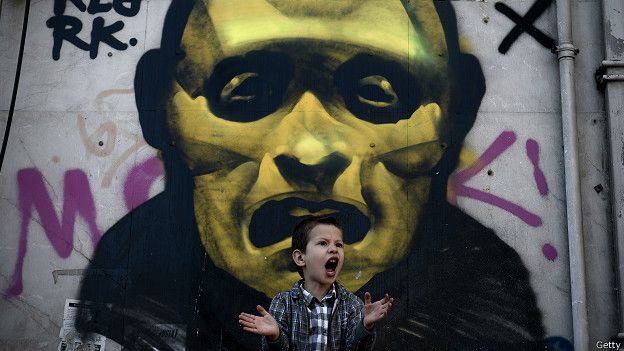<- SiteCatalyst code version: H.22.1. Copyright 1996-2011 Adobe, Inc. All Rights Reserved More info available at http://www.omniture.com ->
The workhorse of the brand austerity negotiations in extremis that the Greek government maintains these days with international creditors
Photo: Getty

The crisis originated ten years ago.
You could say that this latest crisis, one day seems resolved and the following becomes stranded, originated ten years ago.
In 2004, European authorities found that Greece falsified its accounts during several years to enter the euro.
It was the beginning of a crisis that forced Athens to ask for two millionaire bailouts and to apply, in return, a painful reform plan based on austerity.
After five years of cuts in public spending , the newly elected government of leftist Alexis Tsipras (Syriza), sits down again to negotiate with the European Union, the International Monetary Fund (IMF) and the European Central Bank (ECB).

The Greek Finance Minister, Yanis Varoufakis, talks with Christine Lagarde, head of the IMF.
With the economy slumped, galloping unemployment and many Greeks in the yoke of poverty, the government creditors demand further cuts to disable the second rescue (or bailout) of 7,200 million euros.
BBC World presents some key figures of the Greek crisis.
25% GDP has fallen
In the past seven years, the Gross Domestic Product (GDP) has fallen Greek 25%, a figure that makes the crisis in other European countries seem a simple cold.
In 2011, the worst year since the start of the crisis, the economy contracted 8.9%.
After years of strong economic downturn, Greece emerged from recession in early 2014 and managed to grow by 0.8%, a figure that did not translate into improved living conditions of the most impoverished citizens.

45% of pensioners are poor.
In addition, joy It was short: the economy contracted again later that year
The forecasts for 2015 are not good. The European Central Bank expects a meager growth of 0, 5%.
The creditors asked a primary surplus (the amount by which tax revenues exceed government spending, excluding interest payments) of 1% of GDP this year and go raising it to 3.5% in 2018.
Analysts believe that meeting this objective will require a high dose of austerity.
It is estimated that the government should cut taxes and increase in an amount equivalent to 1.5% of GDP in 2015.
52% of young people are unemployed
Although Greece already had high levels of youth unemployment and public debt before the recession, the situation in the country has worsened in recent years.
Unemployment triplicad or has been, reaching 26% of the workforce.
In addition, three quarters of the unemployed take 12 months or longer without work.
If the situation is bad for the general population, young people the brunt.
More than 52% of young people do not work. In 2013, the figure reached 58.3%.
45% of pensioners are poor
The pensions are one of the battlefields Tsipras face with creditors.
The Greek prime minister arrived to power promising that no more cut pensions, but creditors insist on the need to implement more reforms.
And this grant is the main livelihood for half of households in the country, which gives an idea of how it can affect any cuts.

Pensioners protested against cuts in their pensions.
Although Greece is one of the European countries that spend in this chapter (15% of GDP), many pensioners live below the poverty line.
45% of retirees charge less than 665 euros per month , below the line are considered poor.
In 2009, the poorest pensioners were 20%.
Creditors call for a cut of about 1% of GDP in 2017 pension reform and how to make them pay by worker contributions.
The government also has agreed to end soon bit with early retirement.
40% of children under the poverty line
According to UNICEF, in 2013 he was in Greece 597,000 children living below the poverty line.

Many children live in poor households in Greece.
Among them, 322,000 had no covers basic nutritional needs.
According to a report by the Budget Office of the Greek Parliament in late 2014 about 2.5 million Greeks living below the poverty line.
In addition 3.8 persons were in danger of falling below that line.
200 000 officials less
Greece agreed to cut the workforce from 15,000 officials during the negotiations of the first rescue.

Thousands of public sector workers were dismissed by the crisis.
April this year, announced that Greece had reduced its staff of public employees in some 200,000 people since 2009 and has reduced the wage bill of the sector in 8,000 million euros a year.
In May, however, government announced that it would hire 4,000 public workers made redundant by the cuts imposed by international creditors.

 ->
->
No comments:
Post a Comment